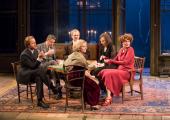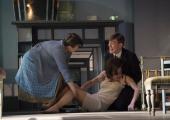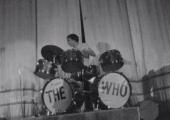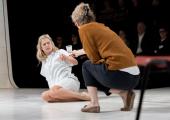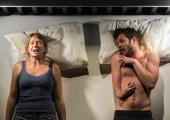The Red Barn, National Theatre

David Hare’s latest is a superb adaptation of a Simenon thriller
At first, I was a bit confused by the play’s title. After all, David Hare gave his 1998 adaptation of Arthur Schnitzler’s La Ronde the moniker of The Blue Room, which coincidentally is the same title as Mathieu Amalric’s very recent adaptation of a thriller by Georges Simenon. Now Hare has taken another Simenon thriller, La Main, and called it The Red Barn, which immediately suggests the murder of Maria Marten in 1827.

